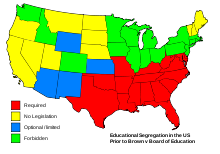I don’t know whether any of you have had the pleasure (and I mean it sincerely, I enjoyed it very much) of visiting Mud Island in Memphis which I suspect is very much covered in mud at the moment. The chief attraction is a scale model of the Mississippi and while the ‘Gulf of Mexico’ may once have been a water park it was pretty green and uninviting when I was there (and I’ve swum in some scummy water, let me tell you).
I suspect that soon they’ll have to make some modifications.
You see, the thing about it is the Missisippi as Mark Twain knew it and we know it today is an obsolete river.
It’s not the shortest and steepest route to the Gulf of Mexico anymore, the Atchafalaya is, and the Army Corps of Engineers knew this back in 1963 when they constructed the Old River Control Structure to begin with. The point was to save the commercial centers of Baton Rouge and New Orleans, not flood control at all.
But as Twain would tell you the mighty Mississippi is a big river and not one that will be denied. Opening the floodgates will only make the Atchafalaya deeper and steeper than it is now and soon enough, in even human not geologic time, the pressure of all that water will not be denied.
The Control of Nature
ATCHAFALAYA
by John McPhee, The New Yorker
February 23, 1987
The Mississippi River, with its sand and silt, has created most of Louisiana, and it could not have done so by remaining in one channel. If it had, southern Louisiana would be a long narrow peninsula reaching into the Gulf of Mexico. Southern Louisiana exists in its present form because the Mississippi River has jumped here and there within an arc about two hundred miles wide, like a pianist playing with one hand-frequently and radically changing course, surging over the left or the right bank to go off in utterly new directions. Always it is the river’s purpose to get to the Gulf by the shortest and steepest gradient. As the mouth advances southward and the river lengthens, the gradient declines, the current slows, and sediment builds up the bed. Eventually, it builds up so much that the river spills to one side. Major shifts of that nature have tended to occur roughly once a millennium. The Mississippi’s main channel of three thousand years ago is now the quiet water of Bayou Teche, which mimics the shape of the Mississippi. Along Bayou Teche, on the high ground of ancient natural levees, are Jeanerette, Breaux Bridge, Broussard, Olivier-arcuate strings of Cajun towns. Eight hundred years before the birth of Christ, the channel was captured from the east. It shifted abruptly and flowed in that direction for about a thousand years. In the second century a.d., it was captured again, and taken south, by the now unprepossessing Bayou Lafourche, which, by the year 1000, was losing its hegemony to the river’s present course, through the region that would be known as Plaquemines. By the nineteen-fifties, the Mississippi River had advanced so far past New Orleans and out into the Gulf that it was about to shift again, and its offspring Atchafalaya was ready to receive it. By the route of the Atchafalaya, the distance across the delta plain was a hundred and forty-five miles-well under half the length of the route of the master stream.
For the Mississippi to make such a change was completely natural, but in the interval since the last shift Europeans had settled beside the river, a nation had developed, and the nation could not afford nature. The consequences of the Atchafalaya’s conquest of the Mississippi would include but not be limited to the demise of Baton Rouge and the virtual destruction of New Orleans. With its fresh water gone, its harbor a silt bar, its economy disconnected from inland commerce, New Orleans would turn into New Gomorrah. Moreover, there were so many big industries between the two cities that at night they made the river glow like a worm. As a result of settlement patterns, this reach of the Mississippi had long been known as “the German coast,” and now, with B. F. Goodrich, E. I. du Pont, Union Carbide, Reynolds Metals, Shell, Mobil, Texaco, Exxon, Monsanto, Uniroyal, Georgia-Pacific, Hydrocarbon Industries, Vulcan Materials, Nalco Chemical, Freeport Chemical, Dow Chemical, Allied Chemical, Stauffer Chemical, Hooker Chemicals, Rubicon Chemicals, American Petrofina-with an infrastructural concentration equalled in few other places-it was often called “the American Ruhr.” The industries were there because of the river. They had come for its navigational convenience and its fresh water. They would not, and could not, linger beside a tidal creek. For nature to take its course was simply unthinkable. The Sixth World War would do less damage to southern Louisiana. Nature, in this place, had become an enemy of the state.
…
Here by the site of the navigation lock was where the battle had begun. An old meander bend of the Mississippi was the conduit through which water had been escaping into the Atchafalaya. Complicating the scene, the old meander bend had also served as the mouth of the Red River. Coming in from the northwest, from Texas via Shreveport, the Red River had been a tributary of the Mississippi for a couple of thousand years-until the nineteen-forties, when the Atchafalaya captured it and drew it away.
…
After the Corps dammed Old River, in 1963, the engineers could not just walk away, like roofers who had fixed a leak. In the early planning stages, they had considered doing that, but there were certain effects they could not overlook. The Atchafalaya, after all, was a distributary of the Mississippi-the major one, and, as it happened, the only one worth mentioning that the Corps had not already plugged. In time of thundering flood, the Atchafalaya was used as a safety valve, to relieve a good deal of pressure and help keep New Orleans from ending up in Yucatán. The Atchafalaya was also the source of the water in the swamps and bayous of the Cajun world. It was the water supply of small cities and countless towns. Its upper reaches were surrounded by farms. The Corps was not in a political or moral position to kill the Atchafalaya. It had to feed it water. By the principles of nature, the more the Atchafalaya was given, the more it would want to take, because it was the steeper stream. The more it was given, the deeper it would make its bed. The difference in level between the Atchafalaya and the Mississippi would continue to increase, magnifying the conditions for capture.
…
The water attacking Old River Control is of course continuous, working, in different ways, from both sides. In 1986, one of the low-sill structure’s eleven gates was seriously damaged by the ever-pounding river. Another gate lost its guiding rail. When I asked Fred Smith, the district geologist, if he thought it inevitable that the Mississippi would succeed in swinging its channel west, he said, “Personally, I think it might. Yes. That’s not the Corps’ position, though. We’ll try to keep it where it is, for economic reasons. If the right circumstances are all put together (huge rainfall, a large snowmelt), there’s a very definite possibility that the river would divert-go down through the Atchafalaya Basin. So far, we have been able to alleviate those problems.”
ps. Check the Dateline.


 The arrest of IMF President Dominique Strauss-Kahn in New York City on sexual assault charges puts on interesting twist on the French Presidential Elections. He is finished as head of the IMF and most certainly washed up with politics in France whether he is acquitted of these charges or not. The French like their sex but not necessarily on the front page of every newspaper around the world. This leaves a gaping hole for the Socialist Party (Parti Socialiste) of whom M. Strauss-Kahn, known as DSK in France, was the leading candidate and was expected to defeat President Nicholas Sarkozy.
The arrest of IMF President Dominique Strauss-Kahn in New York City on sexual assault charges puts on interesting twist on the French Presidential Elections. He is finished as head of the IMF and most certainly washed up with politics in France whether he is acquitted of these charges or not. The French like their sex but not necessarily on the front page of every newspaper around the world. This leaves a gaping hole for the Socialist Party (Parti Socialiste) of whom M. Strauss-Kahn, known as DSK in France, was the leading candidate and was expected to defeat President Nicholas Sarkozy.  Now more than ever, the reason for
Now more than ever, the reason for
Recent Comments